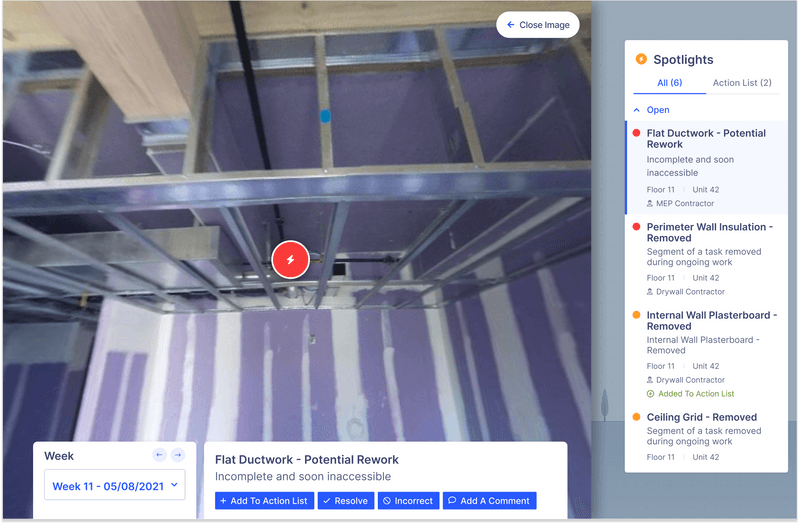Disperse, a provider of building productivity systems in the construction industry, has raised around £15 million of additional funding.
Its technology allows project stakeholders to make informed decisions via an accurate status of their building project. It generates records and analyses data to protect against unchecked construction errors and costly rework.
Founded in 2015 out of a London School of Economics entrepreneurship incubator, by 2019 the company had expanded into the US market, and since then has formed strategic relationships with customers like Gilbane and Urban Atelier Group (UAG).
With the exception of 2020 at the height of the COVID-19 pandemic in New York City, Disperse has reliably grown US revenue by 2x every year since entering the market.
The firm has also continued growing with market-leading builders and developers in the UK and Ireland including Hines, Mace, Sir Robert McAlpine, John Sisk & Son and Multiplex.

2150 is lead investor in the new round which included existing investors Northzone and Kindred Capital.
“2150 is the ideal partner, and we are proud to have their backing,” said Felix Neufeld, CEO and founder of Disperse.
“In the past few years we’ve seen a lot of VCs investing in construction tech without really understanding construction, whereas 2150 has deep real estate development and construction experience.
“They are focused on investing in solutions that actually move the industry, and creating long-term impact, rather than investing in short-sighted narratives. Their approach is very much in line with our mission to unlock the future of building.”
PropTech 50 – UK’s most innovative property technology creators for 2022
Jacob Bro, partner at 2150, added: “Our mission is to invest in technology companies that will make urbanisation sustainable.
“As part of accomplishing that we invest in entrepreneurs with real potential to drive step-changes in the real estate and construction industries. Disperse is addressing the construction industry’s biggest productivity challenges at their roots by using data, computation, and software engineering to unlock massive efficiency gains while also laying the foundation for decarbonization and resilience of the sector.”


